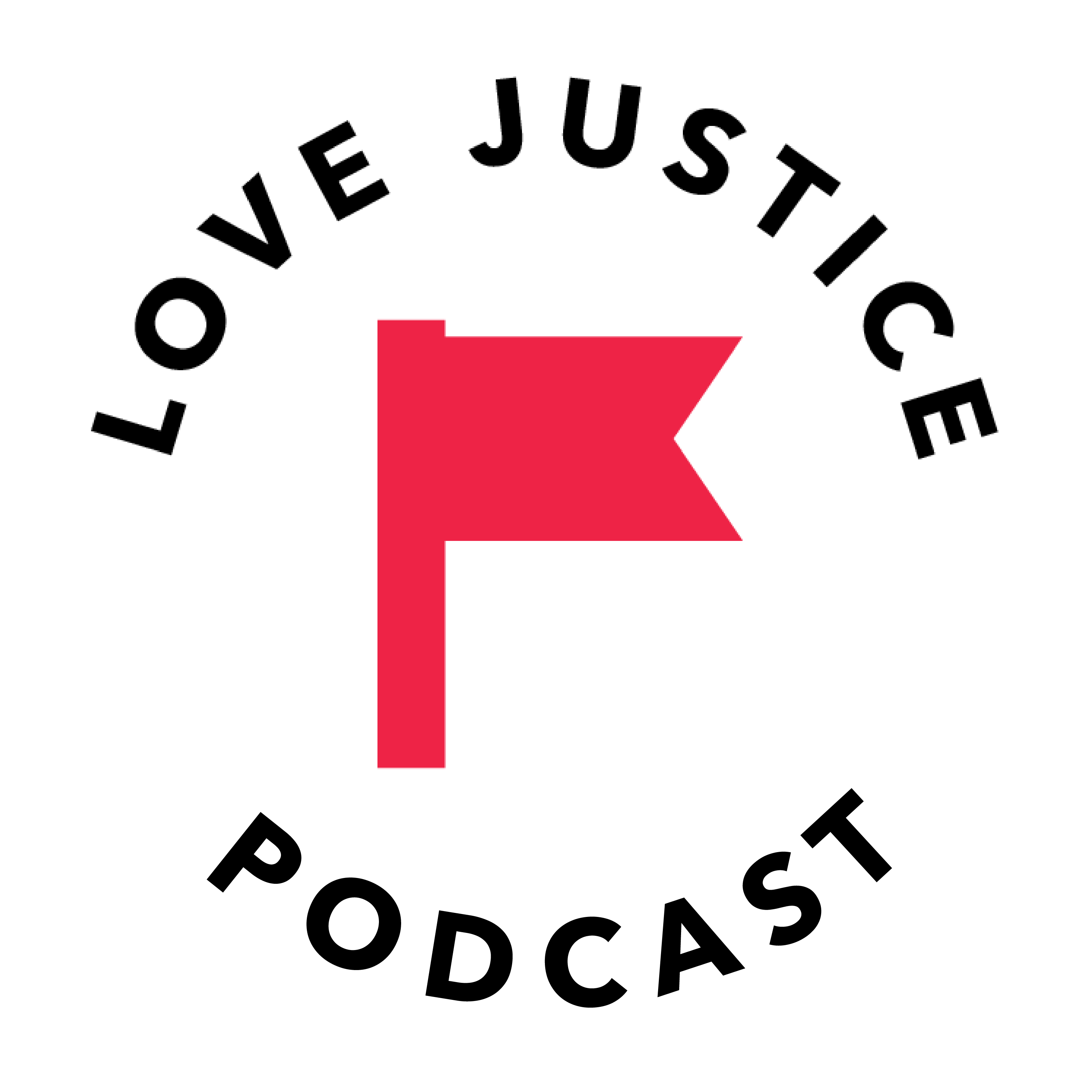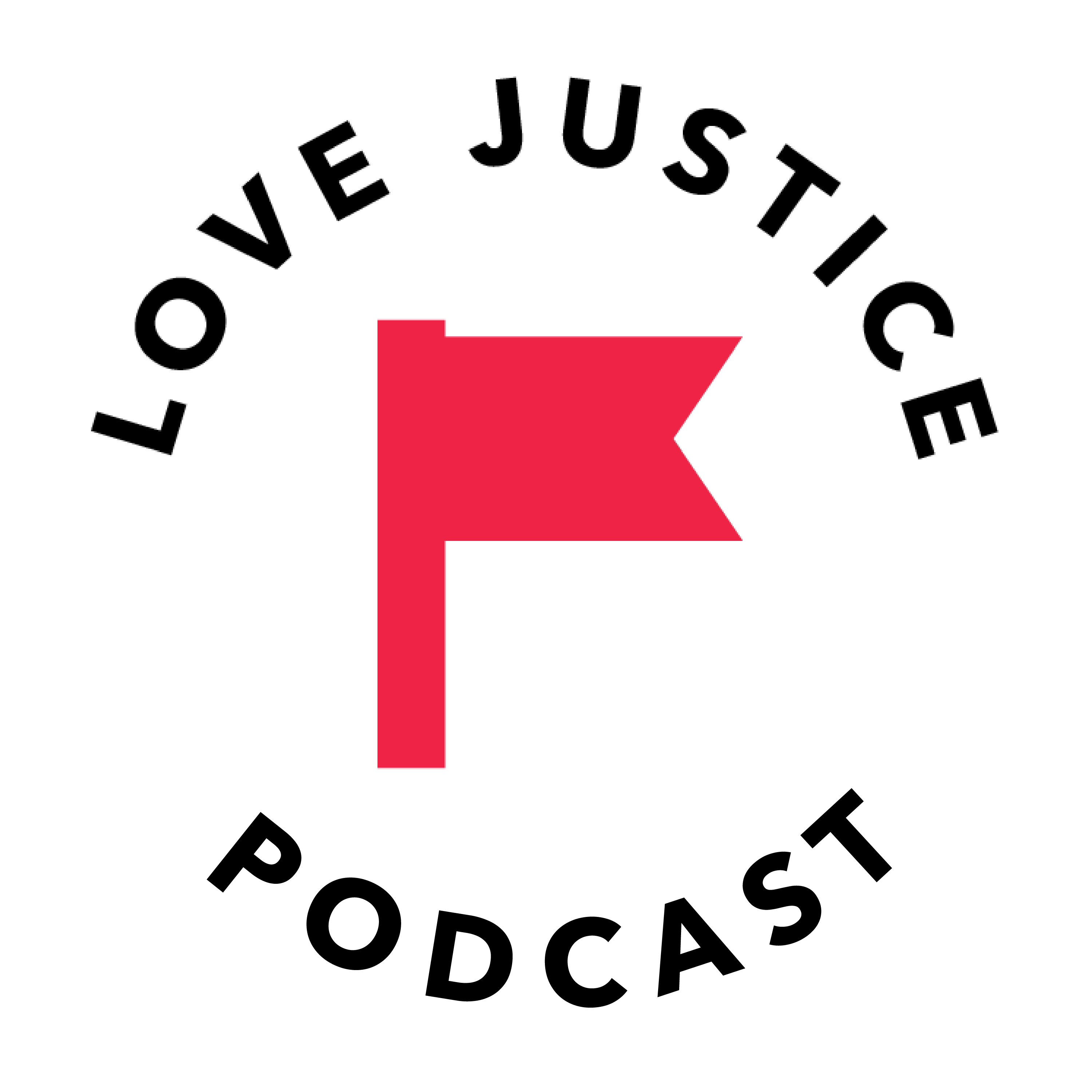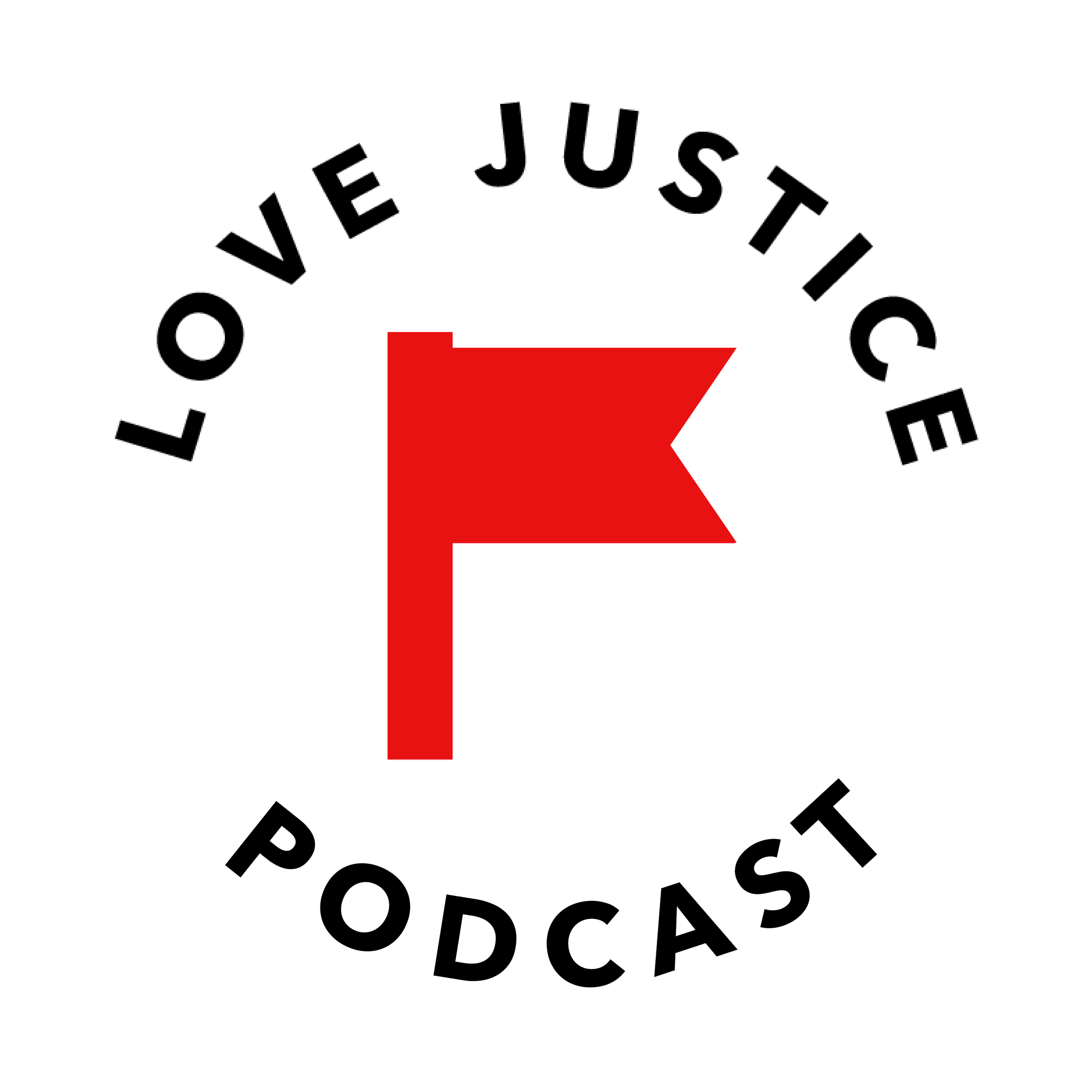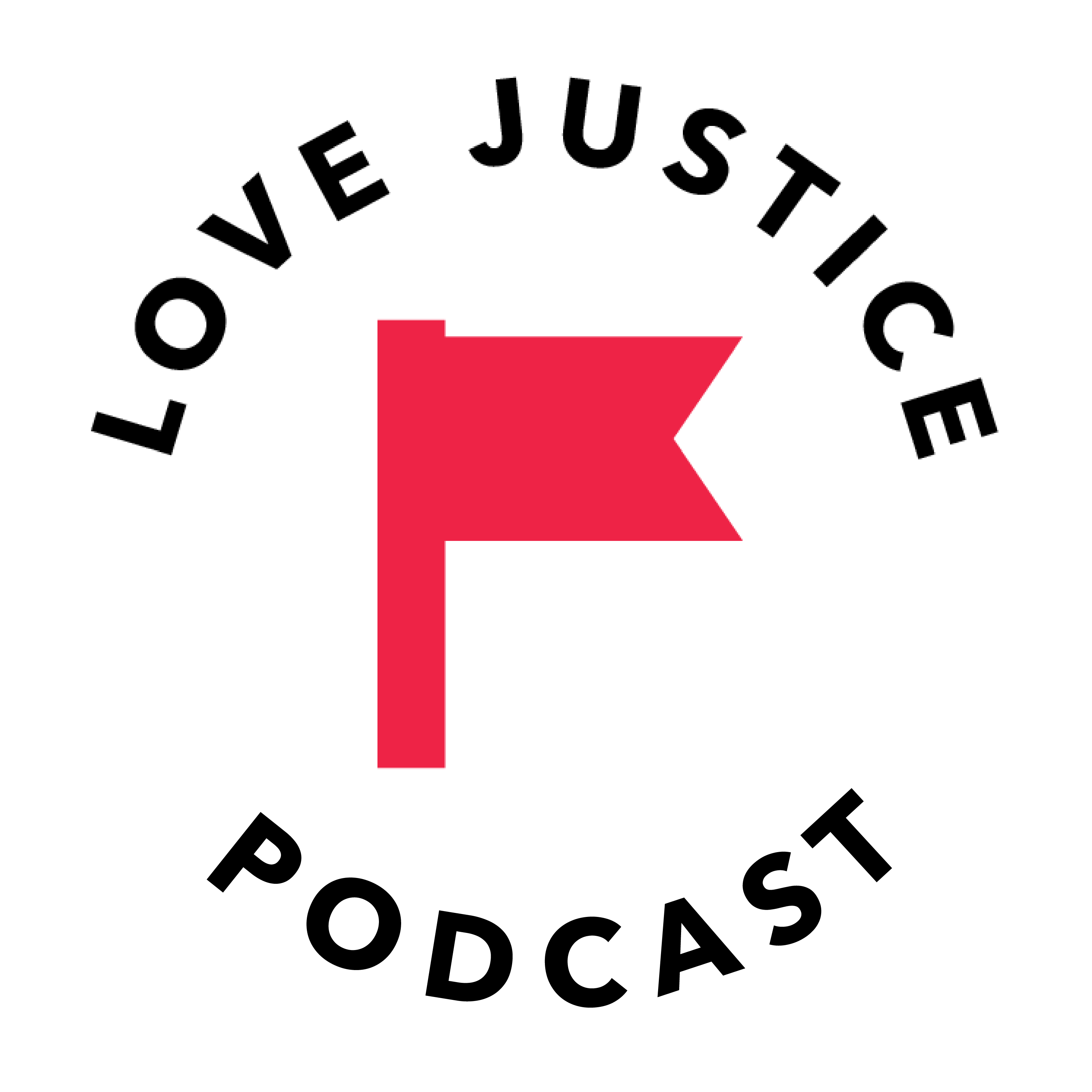Episode Transcript
[00:00:02] Speaker A: Welcome to the Love justice podcast, where we hear from different voices who are joining us in the fight against modern day slavery. Please welcome today's guest, Natalie Brunel.
[00:00:16] Speaker B: Well, hey, welcome to the Love justice podcast. Our special guest today is Natalie Brunel. And, Natalie, I'm so thankful for you to join us on this episode of the Love justice podcast.
[00:00:28] Speaker C: Oh, thank you so much for having me. Looking forward to it.
[00:00:31] Speaker B: Well, we're excited to have you, and we try to keep this short because we know people need or have lots of ways that they use their time. And so we'll jump right in. So, first, just for our listeners and our viewers, tell us, who is Natalie Brunel?
[00:00:45] Speaker C: Sure. So, I am a bitcoin educator. I host a podcast called Coin Stories, where my main objective is to help educate people, not just about bitcoin and how powerful and inspiring this technology is, but also about money. What is money? What is the history of money? How is money created? And why do we currently have such a hard time being able to store value in our current money? So I'm really passionate about that. I want to increase financial literacy and grateful to be able to do the work I do.
[00:01:17] Speaker B: I love that. I love that. And I know for a lot of our donors, a lot of our listeners and viewers, we have folks that are even invested there. And so we'll get to that here in just a second. But one more personal question. Talk about the opportunity that your family was afforded by immigrating to the United States. Like, what that meant to them?
[00:01:37] Speaker C: Well, it was really about opportunity. And my parents wanted to come here so that they could give their children a better life. And that really is inspiring for me because so many people do the jobs that they do, work really hard, sometimes even put their lives at risk, to make the people in their lives be. Be able to achieve something more than them. I mean, they do it for. For something bigger than themselves. And I think that's really important and powerful. The american dream represents something that I think is really universal. It's this idea that it doesn't matter where you come from, it doesn't matter the color of your skin, your religion, how. How poor or rich you. You grew up. It's about hard work and determination and being a good person, a hard working, good person who. Who never gives up. And then. And then the goal is you can achieve really anything. And I think that's really amazing. And so many people have come to this country with that in mind, with that hope that motivates them. And I think we've lost a little bit of that. I think the american dream is a bit on the decline, but I think that we have the chance to have a renaissance of the american dream through bitcoin. And I think there are so many people around the world who just need more hope. They need the ability to save money, to be able to plan for their futures and to take care of the people in their lives.
[00:02:58] Speaker B: It's so good. So you won awards for breaking news reporting, right? Like, was there ever a story that involved an injustice? Knowing that we as an organization fight injustices, that's what we count our mission as. Was there ever a story involving an injustice that to this day always jumps to the forefront of your mind when you think about that?
[00:03:21] Speaker C: Oh, so many stories. I've actually covered human trafficking in all of the markets that I worked in. I've worked in small, tiny markets as well as all the way up to national and network, and I've covered crises and just the struggles that humans face in all types of backgrounds and walks of life. But I would say the biggest injustice story, I covered a lot of public corruption cases.
And one of them, actually two of them involved public officials who were taking advantage of their positions and enriching themselves while other people who were, you know, in the working class didn't. Weren't afforded the same opportunities, even though they played by the rules. Not knowing that there was this sort of other game in play with a different set of rules and people that got an automatic advantage. And that's one of the greatest things about bitcoin, is it levels the playing field. Everyone has to play by the same rules. No one has a special advantage. No one's just going to siphon off wealth and rise to the top like we have in our current system. And I liked pursuing those stories because I think it's important to hold the powerful accountable, especially our government agencies, the big corporations, and really share with the public what's happening. I think transparency is important, especially for people who are serving in public office. They need to report to us. And sometimes I feel like we're fearful of them and that that shouldn't be the case. So it was always very rewarding to cover stories like that where you could shine a spotlight on maybe the darker sides of what was happening in city government and expose it. And then hopefully law enforcement takes the next step and there's action made so that there are consequences and it doesn't happen again.
[00:05:09] Speaker B: And it's such. It's a crazy, isn't it? I mean, that's the common description, really, for any injustice is that someone in power who, or who's seeking gain, takes advantage of people that are either less fortunate or even are themselves desperate, hoping for a new chance. And I love that. I love that you shared that. So you've already shared a little bit about why you care about bitcoin so much. But articulate it, though, just clearly so that our listeners and our viewers, who may not even know as much about it, understand why this actually is a pretty empowering and freedom focused currency and innovation that we're, that we're discovering and realizing here with bitcoin.
[00:05:54] Speaker C: Yeah. I think one of the biggest things the world needs is more people being economically empowered, especially the average person. And it's so hard to save today for the future.
One thing that bitcoin made me realize is that most of us don't really question, why do things get more expensive? Why was it easier a couple decades ago for someone to afford a home on just one income? Why are these prices going up? And why are wages not keeping up with that pace? And once you start to realize what inflation really is and what causes it and how money is created, you start to realize that at the base layer of our current economic system and the way we all interact globally is a system that's based on theft. And we don't notice that theft. I mean, every year, if it's just 2% inflation, it's just a little bit. It ends up being a death by a thousand cuts, because it does add up over time, and people are working harder and harder for money that's worth less. And I don't think that's okay, because our current system, it does offer a huge advantage to those who are politically connected and who have a lot of money. And that's the cantalon effect. If you're close to the money printer, you benefit tremendously, and you're able to accumulate more and more wealth, and, and that's at the expense of everyone else. And so you have growing polarity, growing wealth concentration, and the average person just feeling so frustrated and left behind, like they will never be able to catch up. And I think that leads to so many of the negative things we see in society today. So we can't, we can't blame this on left or right. We can't look at this as a political issue. We have to dig deeper. It's a, it's a problem with our monetary system and with incentives. And the best solution that I've been able to find is bitcoin.
[00:07:35] Speaker B: I love it. I love it. And a lot of people don't even realize to the point that you're making, that in the last, what is it, three or four years? Is it, is it 80% of the american dollar that's ever been printed has been printed? Or is that more of an urban myth that gets passed around?
[00:07:52] Speaker C: I know it's at least 40%, but maybe it could be higher. I'll have to check my, my references for the latest number, but it is, it's a trend. It's a tremendous amount that they printed.
[00:08:03] Speaker B: Yeah. Regardless of 40 or 80. Right. Both are unacceptable, so.
[00:08:08] Speaker C: Right. And I think that's one of the reasons why in the last couple of years we have had sort of this awakening. First of all, many, many people started to appreciate bitcoin and understand it more and seek out hard assets like it because you can inflate slowly over time and no one really notices. And they are sort of fooled. They're lulled into this false comfort of, oh, well, my stock portfolio is going up and my home is worth more. So this is all somewhat okay, even though next generation coming up can't afford these things. But all of a sudden I think we have this jolt, this shock with the pandemic and all the stimulus that was released. So we had both, on the monetary and fiscal side, a huge injection of liquidity. And of course we blew up another bubble. And at this point, we've kicked the can up to the sovereign level. We have so much debt, we've placed the burden on future generations. We have no way to pay it back.
And we finally see it. We see it in the increase of everything, the price of everything, from gas to car insurance, healthcare, the food you eat. And no one can ignore it at this point. Before, I think it was easier to hide. And now you simply can't.
[00:09:19] Speaker B: Yeah, no doubt, no doubt. And I mean, along those lines of how you're kind of describing it there, it's almost like we're setting it up a scenario that is incredibly favorable for human trafficking, for example, just in the context of what we do as an organization. I mean, have you seen bitcoin become a tool that can fight injustice in that way? And if so, how?
[00:09:46] Speaker C: Absolutely. I mean, it is a freedom technology. You don't need permission. Anyone can have access to this network, which I think is so powerful. In fact, I've heard really inspiring stories, especially globally, where there are still some places maybe people don't realize, where women can't have a bank account or they need a man's permission to have a bank account, but anyone can access the bitcoin network. They can download a wallet. And so women in other countries have even earned money that maybe husbands or the males in their life know nothing about. And they're able to acquire that economic empowerment to then free themselves from whatever situation they're in. So obviously, this is a very still, very new asset. It's a new technology. I don't think it has the level of penetration that, that it will in the future, but it absolutely is being used as a tool for freedom and to, you know, subvert oppressive regimes and, and tyrannical situations, whether they be on a smaller, large scale. And I think that's incredibly powerful and inspiring. And we should uplift more of those stories because the more you know, the more you're able to protect yourself and use the tools to your advantage. And, and I do know of, of people working diligently to help victims of trafficking learn about bitcoin so that they do know that they have access to it.
[00:11:09] Speaker B: That's awesome. So how could you imagine bitcoin becoming a tool that helps organizations like Love justice international prevent hideous injustices like human trafficking?
[00:11:25] Speaker C: Oh, gosh. I think that it, there are multiple layers. I mean, at the very base layer, I think if more people were economically empowered and had hope and weren't so stressed out financially, they might not resort to crime. I really believe that. I believe if more people were economically empowered and they could actually, they believed that they could provide value in a meaningful way, they would not resort to something heinous. They would not resort to drug trafficking or human trafficking or anything else. I think a lot of people who end up there probably do so because they're really desperate for money.
And so on the base layer, I hope that it will help with that. On the second layer, I hope that it allows organizations to be able to empower themselves by turning what might be a little bit of money into more and more over the years as the asset appreciates in value. And then the third being a little bit of what I just mentioned in the last answer, which is that victims and anyone involved can empower themselves by having bitcoin, by being able to potentially pay someone in a situation so that they can get out, they can flee, they can escape. In the worst case scenarios, money, if we don't have freedom of transactions and monetary freedom, we don't have freedom at all.
[00:12:50] Speaker B: No, it's so good. So good. I grew up in the inner city, and I've got a buddy that does a lot of inner city work. And I've heard him say several times that a lot of guys who were making money as drug traffickers or other types of things, they've said to him point blank, if you can get me a job that makes me the kind of money I make here, then maybe I would consider it. And he finally got, like, three organizations in town to start doing just that, which became a pretty significant, had a pretty significant impact, I think, like you just said, in a similar way, you know, usually, at least for us as an organization, and we do, we have a pretty significant, robust data collection and analysis system. I mean, we recognize that a lot of folks are desperate when they even are preyed upon. So it isn't even just the traffickers. It's also even the folks that are desperate when they're preyed upon. And then someone preys upon them and offers them a false opportunity and then gets them somewhere and sells them, or worse. And so it's definitely an empowering tool in that way.
[00:13:54] Speaker C: A thousand percent. Yes, I definitely mean it on both ends. I remember seeing a documentary a couple years ago by a german filmmaker who documented the life of prostitutes in three different countries. And these were women who almost all of them turned to this line of work out of desperation and poverty because they needed the money. And the money was so much better to be able to take care of their family than any other option presented to them. And that's just terrible. And so the more that we can work towards removing that incentive and creating economic opportunity in different areas that are productive to society and that help one another and contribute positively, the better for all of us.
[00:14:37] Speaker B: I really believe, no doubt, and most people, at least I think in America, don't differentiate very well between that level of I'll take any job and that level of prostitution, and then even the level that goes toward forced labor and slavery and even sex slavery. And it's just this downward spiral, right, that. That people find themselves trapped in. And so an empowering tool like this potentially could be of significant help. So people say that human trafficking is so huge, like there's nothing just one person can do. You've done a ton of in depth interviews, told so many impactful stories. From what you've seen and shared. Is it actually possible for one person to make an impact?
[00:15:27] Speaker C: Well, I think everyone makes an impact, especially in their local communities. I think we need to focus more on local efforts, and things need to be more grassroots. I really believe in emergent technologies and trends that come from the bottom up rather than imposed on us top down. And that very much goes for our money as well. And I think that even helping one person in your local community is making a massive difference, because they will then, in turn, probably help someone, and it really trickles out. It has an impact that's really positive.
We see it on a small scale in our daily lives all the time. I mean, if you're driving and someone kind of cuts you off or makes a mean face at you, you might be more likely to do that to the next person. But if the reverse happens, someone maybe pays for the drink ahead of you in line or smiles at you, you might smile at the next person. Person. And I think that it all really feeds on each other. And there's some sort of law of attraction where positivity. Positivity attracts more positivity and vice versa. So I absolutely think that any, any small difference that anyone can make is important. And it matters because every life matters. That's the other thing that bitcoin really focuses on, is it is. It's about the individual. It's about individual freedom and rights, and every individual special and unique, and has unique gifts to offer.
And so I think that the more that that can be highlighted and each individual can be empowered again, we might discover things that we didn't even know were possible within society in terms of value and innovation and creative ideas. So I think anything you can do on a small scale is critical.
[00:17:10] Speaker B: I love it. I love it. We have a video that we do that we show, often called how much is freedom worth? And it just demonstrates images of different people that we've intercepted and the beauty that they have and the life and the value that they have, like you said. And then even on the point of the local piece, I love telling the story of how so many of our transit monitors are local nonprofits, local churches, local partners in the 22 countries where we're currently active, that give of their time, give of them themselves to just be there. And they're trained, and we, we put them into places where they're compliant with the things that we need to be compliant with. And then they have an impact. And so if they can do that there and in this type of work, right, that impact can be significant for the. Even the little things that each of us do.
[00:18:01] Speaker C: Absolutely.
[00:18:02] Speaker B: So do you know anyone else that you think we should invite onto the Love justice podcast? And then I'll ask you one last question.
[00:18:13] Speaker C: Oh, gosh. I mean, there are so many amazing voices and names in this space. I'll just name some of my favorites. Jeff Booth, who wrote the price of tomorrow. I think he's always incredible. Alex Gladstein is a great voice, especially for human rights.
Farida Naberima, she's a freedom warrior who's fighting for freedom in her home country of Togo.
Lynn Alden is so inspiring and comes from a background where she overcame so much to get to where she is. I mean, there's so many people.
[00:18:46] Speaker B: I love it. I love it. Well, if any of those that you're willing to help connect us with, we would value it, but many, several of those that you mentioned, I'm big fans of as well. Well, what would you. So, some of our listeners and viewers I know are already into crypto, but a lot of them are not, as you know, the percentages are still there. In that way. How would you encourage someone, just maybe on a final note, because I agree with you, this really is an empowering tool. It is a tool that fights for freedom.
But just how would you even encourage someone to jump into bitcoin?
I feel like this is probably a question you've answered 100 times. I hope I'm not completely putting you on the spot with it, but I think this is one of those things I know you believe in. And so when you introduce someone to it or you help them on board for the first time, what, what. How do you encourage them to jump in?
[00:19:40] Speaker C: Sure. Well, I think the best advice for starting anything is to take it slow. Start. Start small. Um, and that means whether you're investing, you know, you don't have to put in your entire net worth. You can literally start with a dollar or whatever your currency is worth, the smallest denomination, you can start allocating to bitcoin. Um, and. And start learning about it. Really, really. Just asking yourselves those funding fundamental questions, like, what is money? Do I know what money is? Do I know where it comes from? Do I know why there has been such a growing wealth concentration? Why is it so much harder to afford a home today? And if you can't answer those questions very easily, then I think it's time to really dig into not just bitcoin, but our monetary system and why this is such a powerful solution. Um, and. And I just hope people walk away knowing that it. You don't have to be an expert in finance, engineering, computer science. I was. And anyone can learn this. They really can. Just take it slow. Find voices that you relate to, because there are so many in the space from all walks of life and backgrounds, and just start learning.
[00:20:44] Speaker B: That's awesome. Well, and it's a beautiful community, too. I know there's ups. There's, there's good and bad in almost everything, right? But there's a beautiful community in the bitcoin community. And Natalie, you're a big part of that. And so we're very grateful for you. And thank you for being willing to be a guest. And just as we are trying to amplify the story of love, justice, I know you're trying to amplify a story of a tool that provides freedom and empowerment for people. And so we're grateful for you and the work that you do.
[00:21:12] Speaker C: Well, thank you so much. And I'm really passionate about educating women, empowering women. I'm hosting a women of bitcoin brunch. I do it once a year at the big Bitcoin conference. And we're growing each year. And we really want this to be a really inclusive network where women feel incredibly empowered and feel seen and heard, whether they're brand new or prominent leaders. I just think it's so important to build community and support one another.
[00:21:40] Speaker B: I love it. I love it. And that's to the heart of even our cause as well. So we appreciate you. Thank you for taking the time today to be on with us and hopefully we can chat again soon.
[00:21:50] Speaker C: Thank you.
[00:21:52] Speaker A: We are grateful for the challenge, generous support of the love justice community. Please consider joining our family of donors. Learn more at lovejustice NGo.




